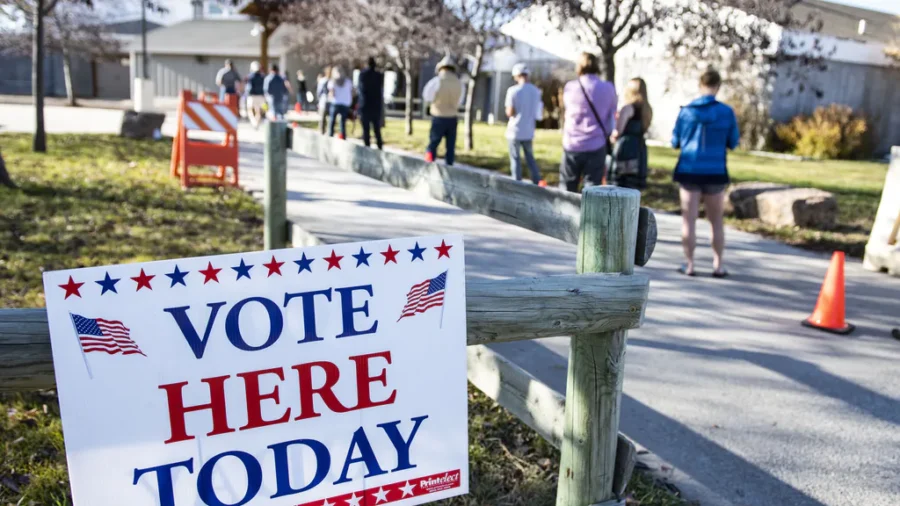A federal judge in Montana on Wednesday temporarily blocked a law that required people to cancel any previous voter registrations before signing up to vote in the state or risk facing felony charges.
U.S. District Court Judge Brian Morris said the law wasn’t clear about the procedure to undo prior registrations, agreeing with the plaintiffs this might lead people to decide against registering to vote for fear of being charged with a crime.
The law determined fines of up to $5,000 and a maximum of 18 months in prison for violations.
“The Court’s ruling protects Montanans and their constitutional rights by ensuring that a simple act—registering to vote—does not turn Montana citizens into felons,” said the president of the Montana Federation of Public Employees, Amanda Curtis.
The law was challenged in court by the Montana Federation of Public Employees union and the Montana Public Interest Group, a left-wing University of Montana student organization. The two organizations claimed that the law would dampen their voter registration activities.
Judge Morris agreed that the plaintiffs were left with a “proverbial Hobson’s choice”—either conform to the bill, thus potentially subjecting those they register to felony criminal penalties, or greatly reduce, or altogether cease, their voter registration activities.
Representative Lyn Hellegaard, a Missoula Republican who sponsored the bill, said in a House meeting last year that the bill was a response to people’s concerns about the integrity of elections and was intended to disparage people from double voting—which is technically already illegal under state and federal law.
The judge dismissed the defendant’s argument that it was too close to the election—scheduled for June 4—for there to be any changes to state election law, saying that blocking the law “likely will not lead to voter confusion and disenfranchisement.”
Attorney Raph Graybill said Thursday that the law didn’t provide a clear process for people to cancel their previous registrations.
“The basic principle is if you’re going to create a crime, the rules have to be clear enough that people can avoid becoming criminals, and this law does not meet that requirement,” he said.
The current voter registration form requires people to list their previous registration, but the new law wasn’t clear if providing that information met the standard to avoid criminal prosecution, said Mr. Graybill, the running mate of Ryan Busse, who is seeking the Democratic nomination for governor in the June primary.
In addition to the lack of clarity, there also remain unresolved practical issues in terms of communicating and verifying interstate registration changes. It is perfectly possible for Montana election clerks to notify their colleagues in other counties about voter registration changes, the state is not part of a national database that would allow it to inform other states about new voter registrations, election officials have said.
Enforcement of the law is blocked until the case is heard in court, Judge Morris wrote.
The Associated Press contributed to this article.


